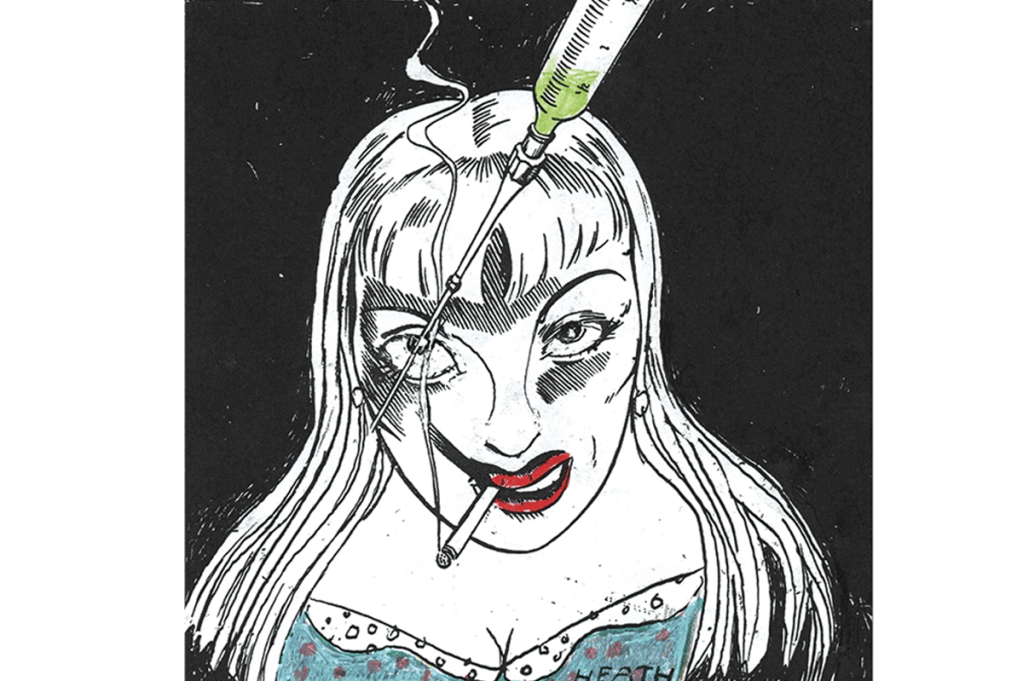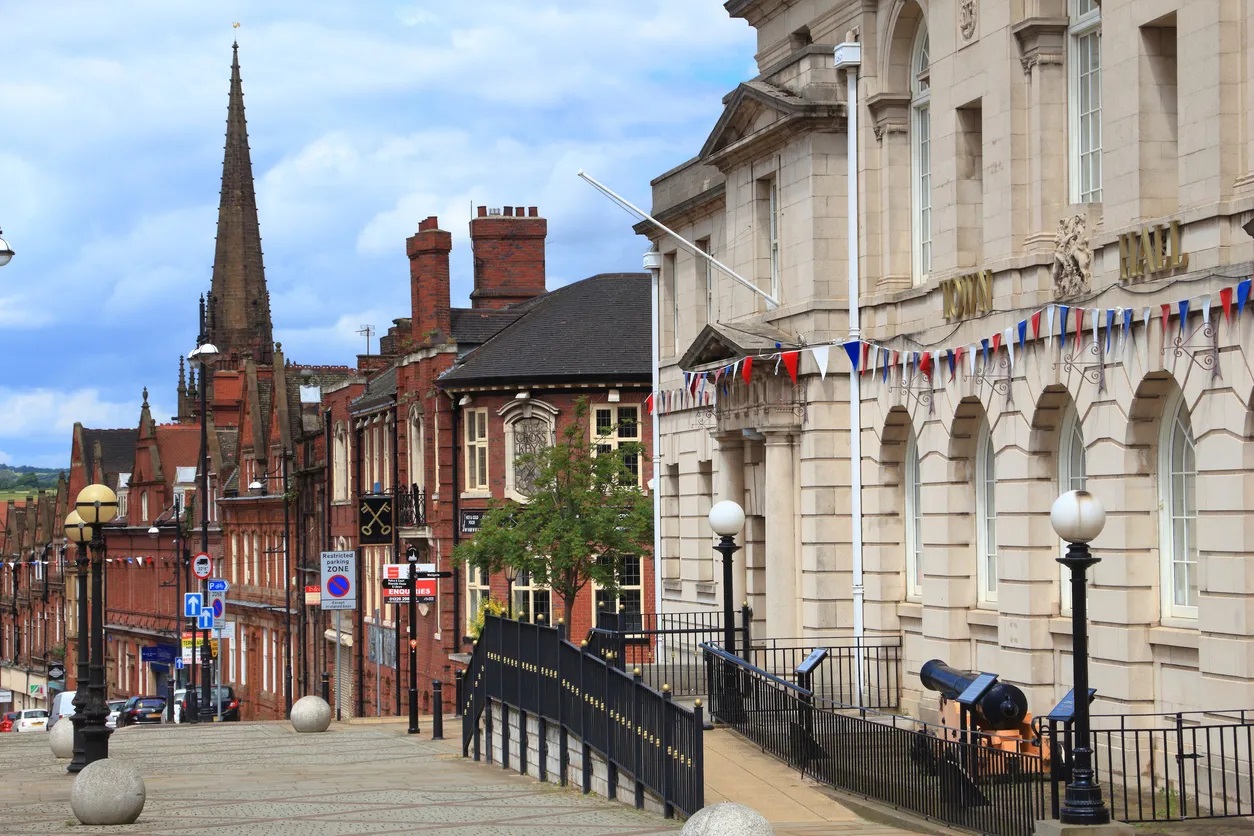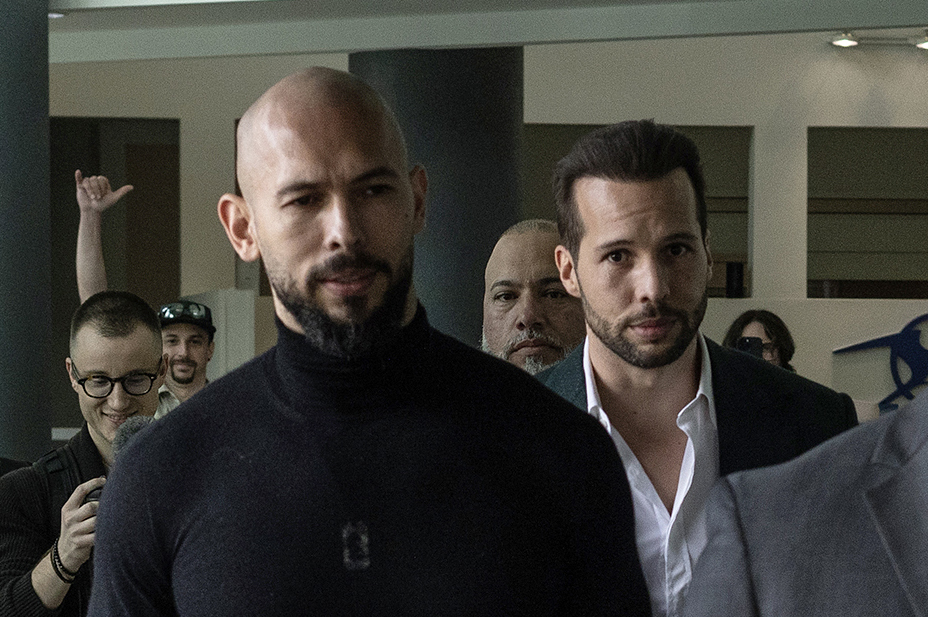It was about this time last year when I stopped receiving the daily messages. At first, I had replied politely. He was from my hometown, so it felt weird to ignore him. A man who knew all of my friends, had even dated some of them, and would often walk past me in the pub couldn’t be that bad, right?
The messages started with the usual: “How are you, Kara? Do you fancy a drink?” When I began to reject him, making it clear that I wasn’t interested, he became manic. He would ask me if I wanted to meet him in a forest not far from where I lived, and, when I didn’t reply to that, his demands became darker and more sexual.
While his messages were a bit alarming, at the time I wasn’t really concerned. Like many young men in my town, he was obviously using hard drugs. I’d often send his unhinged messages to friends, and we’d all have a laugh. He almost became part of my routine. The day the messages stopped, I felt an odd sense of absence.
Then there was a death. But this was nothing new. Growing up, Pontypridd was known as the murder capital of Wales; the town had more killings per capita than any other Welsh community. I didn’t bother to turn up the TV when this latest one was reported. But then the face of my digital stalker flashed up on the screen. Luke Deeley, the man who had been relentlessly pursuing me for more than a year, had killed a woman, sixty-five-year-old June Fox-Roberts, before removing her limbs with a chainsaw. The attack started in the same woodland he had invited me to. Last week he pleaded guilty to manslaughter by reason of diminished responsibility.
Pontypridd feels strangely primed for death. The forests that surround the town are sinister; the type of place you could scream and only the sheep would hear. I always used to joke with my mother that I was one dog walk away from getting chopped up — a joke that became less funny after what happened.
Growing up, it seemed as if everyone I knew had a story about a near miss, or how so-and-so’s father had known somebody who had found a bag of bones. One of my first memories, when I was around seven or eight, was being unable to go to the shop on the corner to get my favorite magazine, Angelina Ballerina, because a man had been stabbed to death outside our home.
At night, Pontypridd’s streets are largely empty except for strange men staggering from pub to pub. There is also an unexplainable fog. The town is most famous for its old bridge — Pontypridd means “the bridge of the earthen house” — where many lives have been lost to suicide. The BBC drama practically writes itself — and PBS would love it. Just cast Kelly Macdonald as the no-nonsense police detective.
In 2015, my town saw its most famous killing. This one even got us our own episode of the TV documentary Murdertown. I’ll start at the end: in April of that year, police officers were sent to question Christopher May — who had been a butcher for twenty years — at his apartment after complaints of a “foul smell.” One of the officers described it as “gone-off meat or food,” another compared it to “cat’s urine.” When they pulled back the shower curtain to investigate, they found pairs of dismembered arms and legs.
Asked where the rest of the body was, May replied casually that “some of her is in the cupboard and some is in the drain at Pontypridd RFC.” That drain would become the location of some of the boozy gatherings in my teenage years. “Meet me at the drain — you know, the one where they found the fingers.”
What’s shocking is just how easily May found his victim. She walked into the Skinny Dog alone; it had been recommended to her by the barmaid in my local pub. She was so drunk that she was refused alcohol after falling off her chair twice, and somehow still walked out on May’s arm. Within a few hours, neighbors heard loud bangs — which they put down to a drunken fall. Forty-seven-year-old Tracey Woodford was dismembered while Westlife’s “Flying Without Wings” was playing in the background.
Murder may be the most extreme symptom, but poor mental health is the disease. I’m twenty-four and I don’t have enough fingers to count how many friends and friends-of-friends have died by suicide. In a town not far from mine, Bridgend, twenty-six people committed suicide in two years. Most were male, many knew each other and hardly any left notes. All except one died by hanging. In 2020, a woman stabbed and bludgeoned a pensioner with two wine bottles and a fire extinguisher in the local shop when he intervened to stop her from killing others. Zara Radcliffe had only been released from a psychiatric unit a few months before. She had stopped taking her medication because she was prescribed the wrong pills and had sought help just hours before the attack, claiming that voices in her head were telling her to “kill or be killed.” The wife of the victim was found waiting in the car outside; she had dementia and was confused as to why her husband was taking so long to do their weekly shop.
Lots of people in Wales suffer poor mental health. I don’t know what it is about Pontypridd in particular that makes its inhabitants so murderous. I’ve always found it a very friendly place, to the right people. But walk into a local pub with a different accent or a strange scent and we can sniff you out pretty quickly. Maybe it’s this insularity that drives people mad.
This article was originally published in The Spectator’s UK magazine. Subscribe to the World edition here.

























